He left work to be a stay-at-home dad. Then his dad’s illness put him on the road to a new career
After three years as a full-time carer, Ryan Kong is easing into part-time work, juggling the demands of family and a whole new sector while looking ahead to picking up new skills — all with help from family, friends and support schemes.
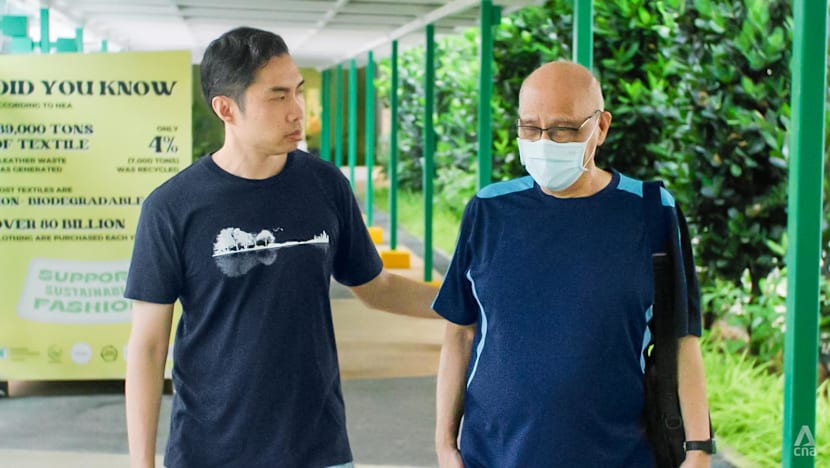
Ryan Kong accompanying his father, Edward, to the Singapore General Hospital (SGH) for a medical check-up.

This audio is generated by an AI tool.
In partnership with gov.sg
SINGAPORE: In 2021, Ryan Kong made a decision many breadwinners would hesitate to take. He left a decade-long career in the public sector to care for his family.
With two daughters under the age of three and a third child on the way, he and his wife wanted to “be there for the children in their formative years”.
“Our parents were still quite healthy then. But we also recognised that there might come a season when we’d need to be a bit more available for them,” he added.
“My sense was I was going to focus on matters relating to life and death.”
Life seemed to confirm that choice within several months, when Kong’s father was diagnosed with a heart condition and, later, liver cancer. He was given six to 18 months to live.
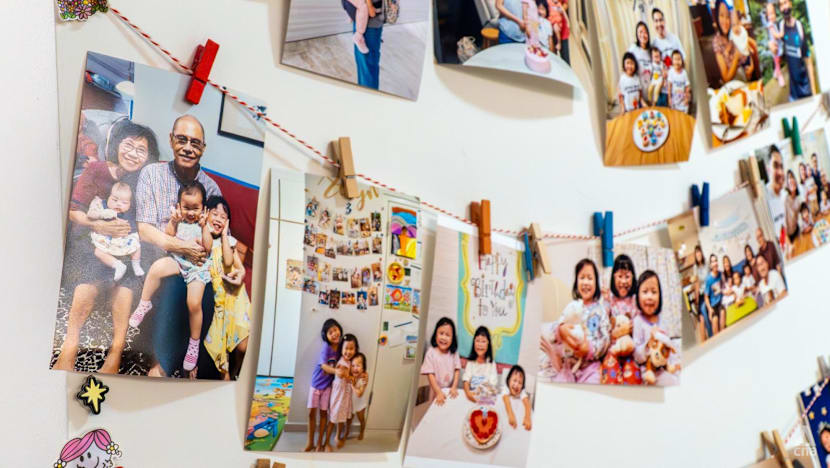
“That’s when your world kind of falls apart,” recalled Kong, 39. “You’re immediately thinking: ‘How do I get through this? What decision do I have to make?’”
Around the same time, COVID-19 swept through his home while his wife, Amie, was nine months pregnant. The whole family fell ill, and he developed shingles shortly afterwards.
“If I was still working,” he said, “I’d probably have run out of leave by the end of three months because of the … family crises.”
The years that followed were packed with his father’s hospital appointments, caring for the children and late nights finishing chores with Amie, who had to look after an ailing father too.
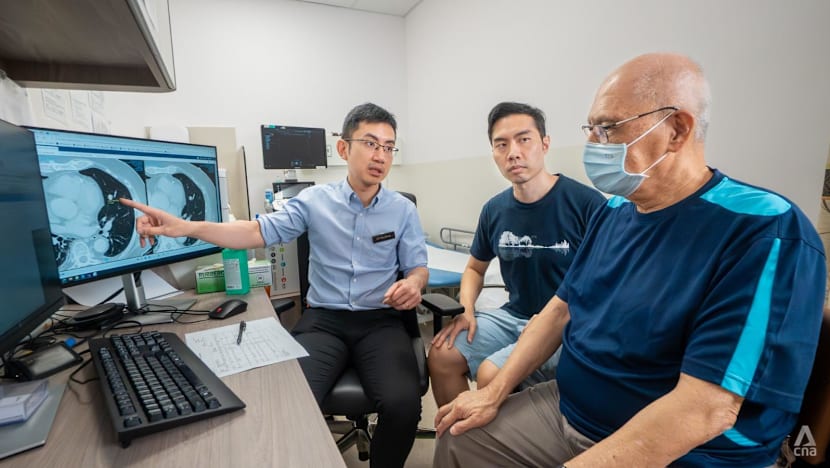
“I’d also have moments (when) I just needed to break down,” he recounted. His daughters, in their simple way, would notice and ask if Papa was sad.
Following that intense period, he started working part-time at the Singapore Cancer Society (SCS). This part-time arrangement has allowed him to remain present for his 73-year-old father and young children.
It is a sector he had never imagined joining, until his own caregiving experiences gave him a new perspective on cancer care — which he now hopes to build on with skills training.
WATCH: I took a career break at 35 for my family — now I’m trying a new career path (10:48)
LIVING SIMPLY WITH HELP FROM MANY SIDES
To get through the tough years earlier, the family dipped into their savings and leant on relatives and friends as well as their faith.
Kong’s brother pitched in financially to support their parents, while friends surprised them with supermarket vouchers. One friend even quietly transferred money to Kong for a bill that had had him worried.
Others offered to run errands, watch the girls or accompany Kong’s father on his recovery walks. “We’re blessed to have friends who are so supportive,” said Kong.
Government schemes were another safety net. His father drew on Merdeka Generation subsidies and MediSave for check-ups and chemotherapy, while the family’s blue Community Health Assist Scheme (CHAS) card helped when they visited CHAS general practitioners.
His eldest daughter, now in Primary 1, is on the Ministry of Education Financial Assistance Scheme, which provides school fee waivers, free textbooks and meal subsidies, among other things.
Community Development Council vouchers — and now the SG60 vouchers — have also helped with groceries and food, helping to “alleviate some of the (daily) costs that we’ve had to think about”, said Kong.
At home he and Amie, 37, have long had a simple lifestyle. For example, apart from going on a mission trip to Thailand earlier this year, their family does not travel much.
“(But) we can go to outer space,” Kong quipped, citing an example of the pretend-play his girls engage in. “I’m the rocket.”
Hand-me-down clothes, toys and books fill the gaps, while the girls’ entertainment also includes cycling, riding scooters and library visits. The couple have opted not to send their girls to enrichment classes, meanwhile, other than swimming lessons.
“We don’t have to look at how other families do things,” Kong has told his girls. “We have our own version of fun.”
Amie added: “The kids just want to be with you. And as long as they’re with you, (it) doesn’t matter (to them) where they go.”
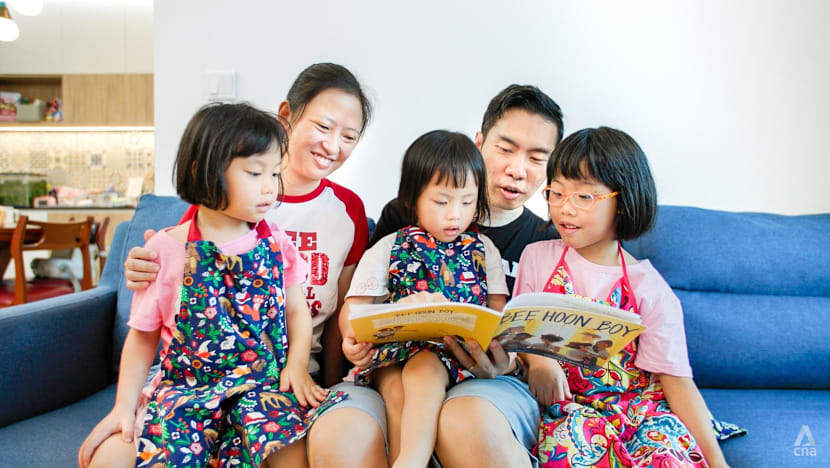
A NEW ROLE AT THE RIGHT TIME
It was by chance that Kong found his way back into the workforce.
While accompanying his father to a medical appointment, he bumped into an ex-colleague who was now working at the SCS. She later told him about an opening in its cancer care innovation team, a role with flexible hours.
With his daughters becoming more independent and the care of his father being less intensive than before, the timing felt right. He joined the non-profit organisation at the start of the year.
Beyond flexibility, the work struck a chord with him. “I realised that I had a deeper appreciation of the struggles of a cancer patient as well as the challenges that their family would face,” he said.
“You could say I had new-found meaning.”
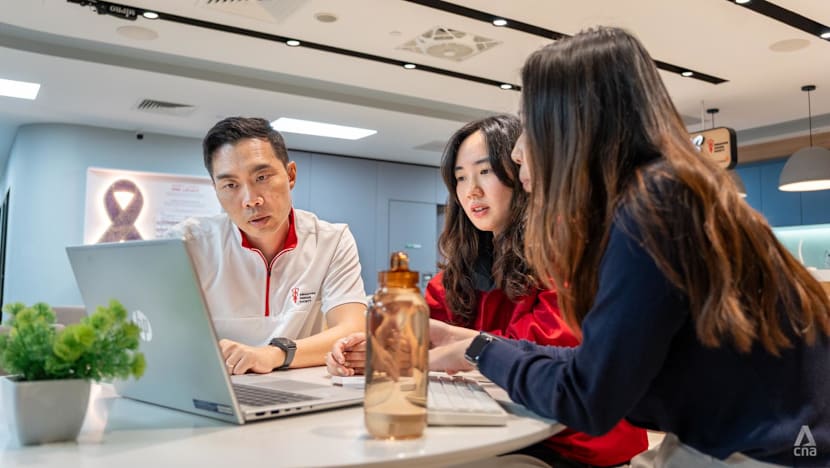
As an assistant manager, he helps assess how care is provided to meet changing needs in the cancer community and to forge healthcare partnerships.
Although it felt like a natural extension of his home life in recent years, entering a new field had its challenges, especially in the first three months, he said.
He had to “hit the ground running” and pick up new terms. But his colleagues made the transition smoother, pointing him to resources and explaining jargon when he felt lost.
The agency’s regular “Learning Tuesday” sessions also exposed him to different parts of the cancer community.
His supervisor, Priyanka Rajendram, the SCS’ clinical head of cancer prevention and control, said Kong’s policy background and lived caregiving experience were valuable.
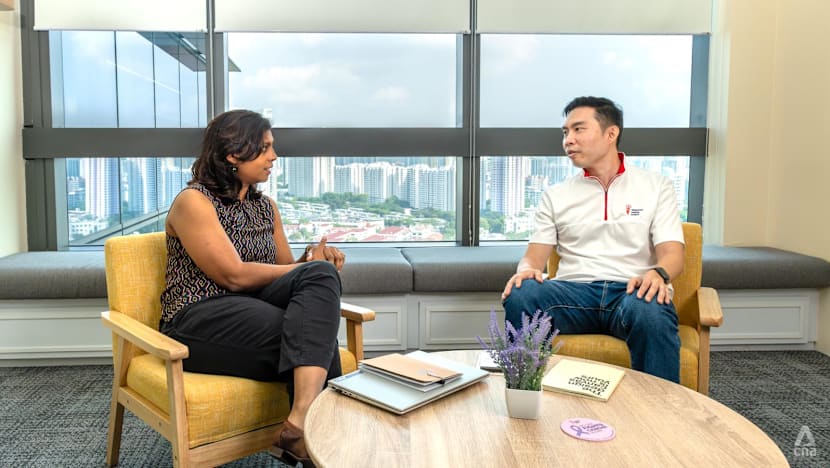
“Your own story has also helped us (to better) understand the journey of … going through cancer,” she told him.
Notwithstanding that he has half the typical working week, family routines have had to be reconfigured.
On his working days, Amie manages the childcare load until he can take over at night. His mother and siblings help with pick-ups and meals. On other days, the couple alternate between caring for their children and fathers.
“We’re on the same team,” said Amie. “If I’m not there, then he’d pick up the slack. And if he’s not there, I’d pick up the slack.”
Or as Kong put it, “As a family, we adapt.”
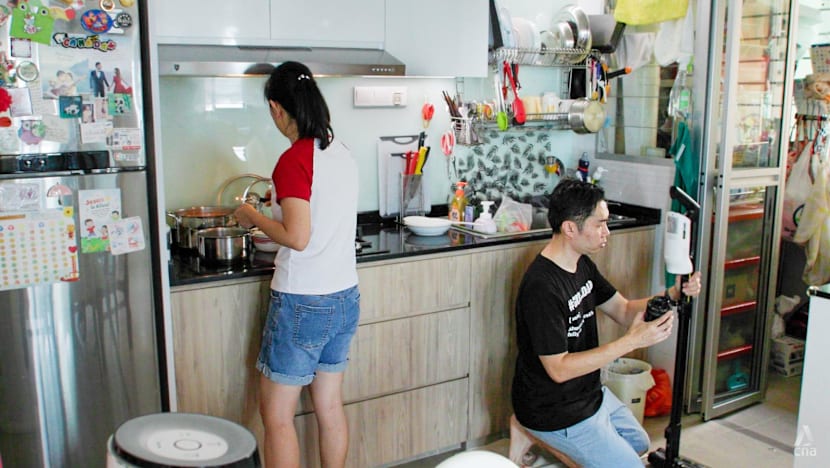
LOOKING AHEAD, ONE STEP AT A TIME
More than half a year into his role, Kong is clear-eyed about the gaps he wants to close: for example, deepening his cancer literacy, and understanding how to work with community and clinical partners as well as engage stakeholders better.
“There are a lot of technicalities that I have to be accustomed to,” he said. “It’s really learning about the whole cancer journey.”
His supervisor supports his interest. She said he could shadow medical professionals, as well as tap resources such as the SCS’ training budget or external options like subsidised SkillsFuture courses.
For now, he is soaking up as much as he can. He is interested in talks and modules offered by hospitals and universities, and is open to further studies, depending on how his family’s needs evolve.
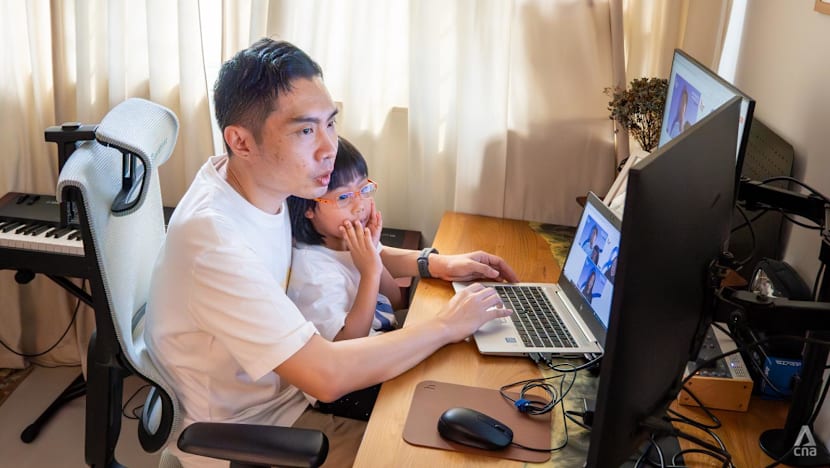
As it is, the chance to climb the learning curve again, he said, “keeps (him) going”.
Stepping away from work for some time has come with a cost, he acknowledged. “Naturally, my peers have all moved on. Many of them are in managerial positions now. But I must say, I have no regrets,” he said.
“Sometimes they ask me, ‘… isn’t that such a huge sacrifice (to make), to give up your career (for) full-time caregiving? What about your own needs?’
“In my case, I chose what was nearest and dearest to me, and I chose to invest in that. Hence, I don’t see that as a sacrifice.”
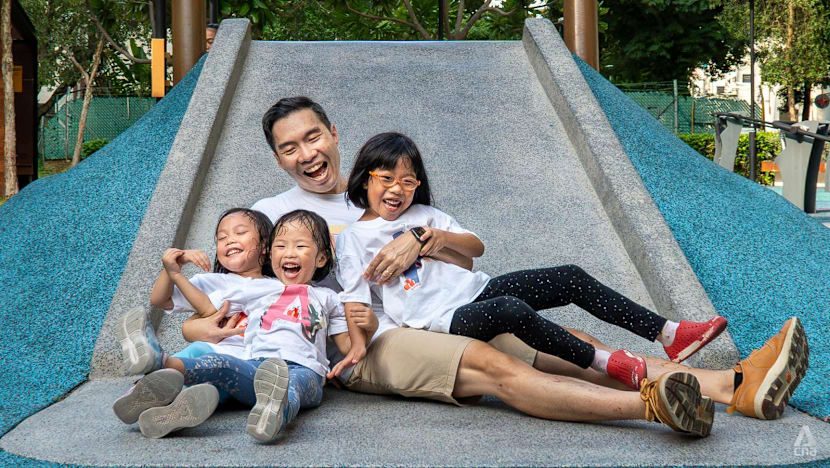











.jpg?itok=h-d3G20X)







